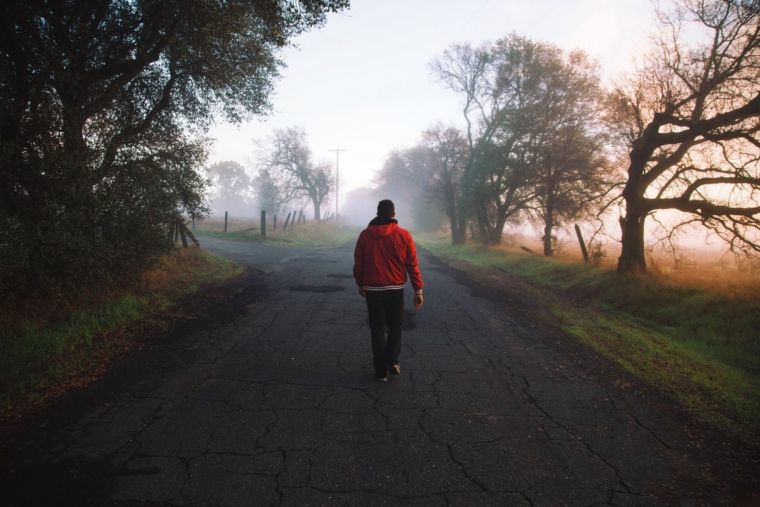Why our greatest mental health challenge is still ahead

I wonder what it's going to feel like as we come out of lockdown – albeit gradually.
As I've thought about this, my mind has turned to my own experiences of reverse culture shock – those experiences of being away in another culture and coming back home.
Whilst the idea of culture shock - the psychological, emotional and cultural impact of entering a new culture - is well known, the idea that when you re-enter your home culture there can be a "reverse" culture shock is less well understood.
My first experience of reverse culture shock was on returning from my Gap year in 1986 from Taiwan. At age 21 the experience of culture shock had been profound, but the reverse aspect of it knocked me for six. I remember the shock of seeing grass verges and green hills once again and entering a supermarket to be overwhelmed with the choice of crisp flavours that assaulted me. I remember the joy of the first moments of re-uniting with family, followed by the disappointment, judgement and realisation that I had fundamentally changed and my home and those I loved had changed as well.
My other experience was taking 12 business people on a 10-day camping trip to Mozambique - camping under the stars in a rural village where you never knew what was for breakfast or dinner and where your safety was always your paramount concern. As we travelled back to the UK we allowed the business people one night in a 3 star hotel in Maputo before flying back.
As people came down to breakfast the following morning, they started asking why there wasn't any apple juice or tomato juice for breakfast - because that is what you would expect from a hotel. The day before they would have been grateful for anything, but now their expectations were raised of what the new normal should be and they were disappointed.
We've all been on a journey over the last year. Our routines have changed. Our relationships have changed. Things that we once took for granted have not been possible. We've lost physical contact with loved ones and work colleagues. We've become used to a new way of life, a new way of doing things.
During this pandemic we may not have been to a foreign country, but our homes and relationships have been changed forever and insecurity, uncertainty and anxiety have become daily companions as a result.
And because of this, I think re-entry will be harder than we think, and our greatest mental health challenges may still be ahead of us.
So, what we can learn from what we know about reverse culture shock that can help us navigate this next season?
Regardless of the speed at which lockdown lifts and the fact that space, face, and washing hands will be part of the norm for many years to come, reverse culture shock teaches us we will go through several phases.
First, there will be a honeymoon period where we will all be delighted to do things together again, party and eat out, mix, go to church and for many people, go back to the office.
Second, that honeymoon period will end and there will be moments of disillusionment as we realise that we have changed and everyone else has changed as well.
Third, there will be a period of re-adjustment as we question our purpose, think through what we want to be doing with the rest of our lives and make choices about old habits that we want back and those that are gone for good.
We will have a myriad of choices to make about how we want to build back better and that should fill us with hope.
But even if we anticipate what is coming, the question remains: how can we help people re-adjust?
We need to give permission for everyone to recognise that we will all go through reverse culture shock at different speeds. Our experiences have been different, and our re-entry will be different. Different for homeschoolers, home-workers, key workers, retired people and those who have lost loved ones.
Different personality types will also respond differently; some will want to get on immediately with re-building and partying, and others will need time to process what has happened.
Reverse culture shock should show us the psychological and emotional rollercoaster we will experience - from honeymoon periods of joy to the depths of despair. We will need to be kind to one another and show each other grace.
Through the YourNeighbour campaign we have seen that the Church in the UK can have a major role to play in creating safe and supportive spaces in which people can reflect on their journey through lockdown – whatever their experience – and where the Church can truly be a good neighbour in preparing people for the reverse culture shock that is ahead.
Simon Barrington is the Chair of Trustees of Kintsugi Hope – a partner of the YourNeighbour campaign.











